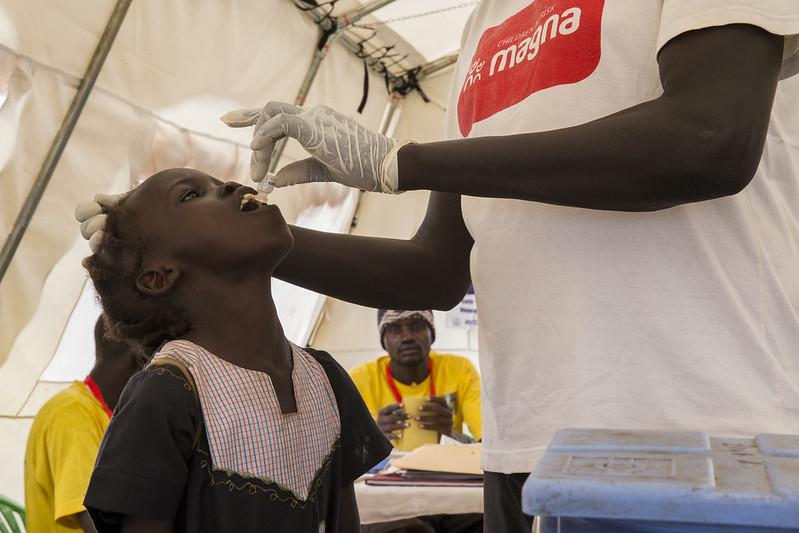Twenty three countries in Africa have battled cholera outbreaks this year, with Chad as the latest nation to report a surge. Meanwhile, outbreak responders this week launched a vaccine campaign in Sudan, one of the hardest-hit countries and where an ongoing civil war has created conditions fueling the outbreak.
At an Africa Centres for Disease Control and Prevention (Africa CDC) weekly briefing today, Yap Boum, PhD, MPH, deputy incident manager for Africa CDC's mpox response, said nearly 250,000 cases have been reported this year, a number that has already topped the total reported for 2024.
Though South Sudan, Sudan, and the Democratic Republic of the Congo (DRC) have been the highest-burden countries, outbreaks continue to strike other countries, including Chad, where cases have risen about 872% over the past 6 weeks.
Chad’s outbreak began at refugee camp
The group said Chad’s outbreak began in mid-July at a refugee camp in Dougui, then quickly spread to host communities and multiple health districts. The main drivers are movements of refugees from Sudan, overcrowded refugee camps, and poor hygiene conditions. Boum said the current hot spots are six health districts in Ouaddai province and one district in Sila province, both in the country’s southeast.
In other developments, health officials are tracking a significant rise in Burundi, which Boum said requires close monitoring and stepped-up response actions. Meanwhile, trends are stable or declining in high-burden countries.
Though the overall trend is stable in the DRC, one of the high-burden countries, population movements, flooding, and persistent humanitarian crises continue to fuel disease activity. In recent weeks, South Kivu province has been an emerging hot spot, accounting for 60% of new cholera admissions.
Africa CDC weather projections say moderate to locally heavy rainfall, which heightens flooding risk, is expected to continue along the Gulf of Guinea on Africa’s west-central coast. Africa CDC said flooding has been a key driver of cholera activity in Chad, South Sudan, and Sudan.
Vaccine campaign launches in Sudan
The World Health Organization (WHO) yesterday announced the launch of a cholera immunization campaign in hot spots in Darfur region, which will target 1.86 million people ages 1 year and older with the oral vaccine. The group said the intervention comes at a critical time, as cases in Darfur continue to mount at an alarming rate, against the backdrop of ongoing conflicts and a lack of basic services that makes it difficult to provide essential healthcare.
The WHO, UNICEF, and Sudan’s health ministry have been working together to overcome numerous access and transport challenges, the WHO said. The country is in the midst of its longest cholera outbreak, which began in July 2024 and has sickened at least 113,000 people, about 3,000 of them fatally.
Shible Sahbani, MD, who heads the WHO mission in Sudan, said in a statement, “The people in Darfur, and the rest of Sudan, must be protected from disease and suffering, and we are here to do exactly that as we have been doing so for decades.”
Mpox on the rise in Liberia
In mpox updates today, Boum said mpox cases continue to trend downward in earlier high-burden countries such as the DRC, but increases over the past few weeks are occurring in Guinea, Liberia, Ghana, Mozambique, Kenya, and Nigeria.
Boum said Liberia averaged 58 cases a week over the past 5 weeks, with active transmission under way in five counties: Montserrado, Grand Bassa, Nimba, Lofa, and Bong. However, he added that Montserrado County accounts for 68% of the confirmed cases. The country has been mainly been treating people at home, which poses a risk of further spread, but has recently made some headway with isolation in treatment facilities. Africa CDC officials will consult with Liberian officials about the outbreak in the coming days.
One bright spot in Africa’s battle against mpox is the availability of about 200,000 more MVA-BN vaccine doses, though Boum said funding is still needed for the rollout of new or expanded vaccine campaigns.

















